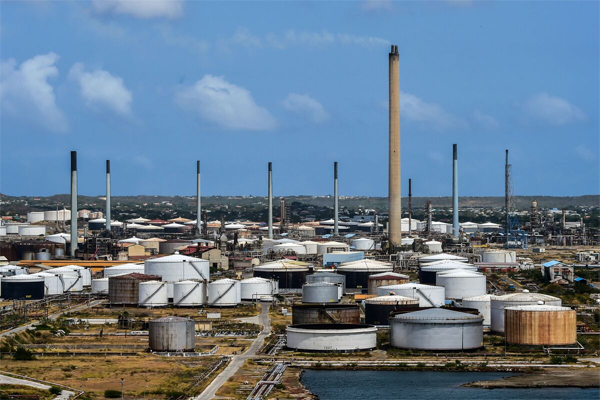- Global Oil wants US permission to buy oil from Venezuela
- Isla refinery is seeking crude as payment for PDVSA’s debts

Nicolle Yapur/Bloomberg News
CARACAS
EnergiesNet.com 07 19 2023
Florida energy magnate Harry Sargeant III is planning to revive one of the biggest oil refineries in the Caribbean more than three years after it shut, providing a potential route for Venezuela to export more oil.
The state-owned Isla refinery in the Dutch island of Curacao has inked a 5-year deal with Sargeant’s Global Oil Management Group LLC to manufacture and export asphalt, the companies said. Production could begin as soon as the first quarter of 2024, Patrick Newton, the refinery’s interim managing director, said in an interview from Willemstad, the island’s capital.
Global Oil Management’s local subsidiary Curacao Oil Refining and Trading is seeking US permission to buy crude from nearby Venezuela, home to the world’s largest cache of oil reserves which have become nearly inaccessible due to US sanctions. The move puts the oil magnate and Curacao in a strategic position if the US continues to ease restrictions on the South American nation.
“Venezuela has the best oil in the world for asphalt production,” Sargeant said in an interview via video conference. The US and Puerto Rico would consume over half of the plant’s expected output of 1 million tons a year, while the rest would go to Curacao and other markets in the region where there’s opportunity, he added.
Read More: Chevron Expands Venezuelan Crude Sales to Other Oil Refiners
Boasting the largest terminal in the Caribbean, the Isla refinery was leased by Venezuela’s state oil company Petroleos de Venezuela SA but has been shuttered since late 2019.
Refineria di Korsou, the state agency that owns Isla, is working to settle more than $1 billion in lawsuits against PDVSA for unpaid license fees and other service agreements. The refinery is seeking US permission to resell the oil it would receive as payment from PDVSA, giving the asphalt plant operator another source of Venezuelan crude without breaching sanctions. Newton said he is optimistic a deal would be reached by the end of the year.
The refinery needs about $2 billion in repairs and investment to restore to its full capacity of about 335,000 barrels a day. The plan is to activate the refinery in phases, starting with asphalt and eventually restarting crude distillation. Sargeant said it’s possible his company could expand from asphalt to other areas directly or by bringing other investors.
— With Fabiola Zerpa and Lucia Kassai
bloomberg.com 07 18 2023












